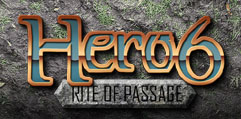the dictionary definition is pretty much correct. Indo-european refers to a group of languages from India and Europe (was well as plces in between). Pretty much all European languages fall in this group with the exception of a few minor ones like basque.
to quote a text book:
The term "Indo-European" has no biological significance. It has replaced earlier labels like "Aryan," "Indo-Aryan," and "Indo-German," which are associated with untenable nineteenth- and early twentieth- century racist ideas. "Indo-European" is primarily a linguistic label used to identify the family of closely related languages that include Sansrit in India, Persian, Armenian, the Slavic tpngues, Greek, the Celtic dialects, the Germanic languages, English, Latin, and all the Latin derived Romance languages. Linguistic scholars have reconstructed a hypothetical Indo-Europeanmother tongue from the common characteristics of these languages. It seems to have orginated among people living between the Black and Caspian seas in what is now southern Russia. Probably in the third millenium B.C., various groups of Indo-European speakers began to migrate. Some headed south. Others went north and west. As they resettled and intermingled -sometimes peacefully, somethimes violently- with the existing inhabitants of territories into which they migrated, their language and culture became modified in ways that gradually distinguished them from other Indo-European-speaking groups. People who adopted the language and other cultural features of the newcomers, even as they helped modify them, have become part of a new Indo-European group. Eventually, some of the new group would undergo a similar process of physical and cultural assimilation and modification as they, in turn, moved on again
The various Indo-European-speaking groups that evolved over time seem to have shared some important cultural characteristics beside linguistic. Words relating to weapons, horses, and cattle are prominent parts of their vocabularies, but there are few terms relating to farming and even fewer connected with seafaring. Probably, therefore, early Indo-European-speaking people originated as warlike, seminomadic pastorialists. They also appear to have had a patriarchal social structure, often organized in tribal kinship groups. A king and his council usually provided leadership, but ultimate sovereignty often resided in an assembly of adult males.
Indo-European-speaking peoples seem to have shared a polytheistic religion that prominantly featured a patriarchal sky god:
Dyaus in Sanskrit,
Zeus in Greek,
Juppiter (
Diespiter [
Zeus Pater]) in Latin, and
Tyr in Old Norse. THese names are all linguistic variations of the same original word. They are also clearly related to the generic word for "god" in many Indo-European-languages, e.g.
deva in Sanskrit,
daeva in Persian,
theos in Greek,
deus in Latin,
tivurr in Old Norse.
Anyways, hope that answers your question (cause I'm not going to dig up much more info for you







